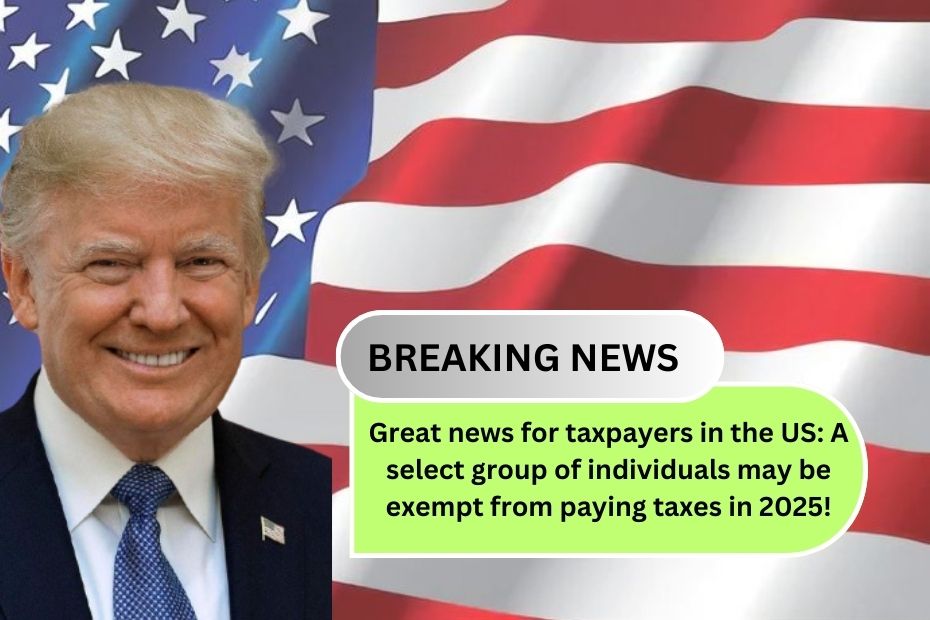Great news for taxpayers in the United States! Starting in 2025, certain groups of people could be exempt from paying federal taxes, offering them some much-needed financial relief. These tax changes aim to help people who face specific challenges, making it easier for them to save money. Understanding these updates can help you take advantage of these exemptions and plan your finances wisely. Let’s take a closer look at who might benefit from these tax exemptions in 2025 and how to make the most of these changes.
Who Could Benefit from Tax Exemptions in 2025?
There are several groups of people who can take advantage of these tax exemptions. If you belong to one of these categories, you could save a significant amount of money in the upcoming year. Here’s a detailed look at the individuals who may benefit the most from these tax changes.
1. Seniors with Limited Income
Seniors who are retired and earn below a specific income level may not have to pay any federal taxes. This includes Social Security benefits, which can also be tax-free if the senior has little or no other income. This change is a huge relief for older Americans who rely on fixed incomes from retirement savings or pensions.
2. Veterans Receiving Disability Benefits
Veterans who receive disability benefits from the U.S. Department of Veterans Affairs (VA) can rest easy knowing that their disability payments will remain non-taxable. This means that veterans won’t have to pay taxes on the money they receive for their well-being, ensuring that every dollar goes toward helping them live a better life.
3. Low-Income Households
Families and individuals who are under the federal poverty line can qualify for significant tax relief through programs like the Earned Income Tax Credit (EITC). The EITC is a benefit designed to help lower-income individuals and families, making it easier for them to afford basic needs and improve their financial situation.
4. Students with Eligible Scholarships
Students who receive scholarships that cover their tuition and related educational expenses could enjoy tax-free benefits. If the scholarships meet the requirements set by the IRS, the funds will not be subject to federal taxes. This helps ease the financial burden of education, allowing students to focus on their studies and future careers.
5. Residents of Disaster Zones
If you live in an area that has been declared a disaster zone by the federal government, you may be eligible for temporary tax relief. This exemption is designed to help people recover from natural disasters, such as hurricanes, floods, or wildfires, by easing their tax obligations during difficult times.
6. Charity Workers Abroad
People who work for eligible non-profit organizations in other countries may qualify for special tax exclusions. These tax breaks help reduce the amount of taxable income for individuals who dedicate their time and effort to helping others overseas, making their work in global service more financially manageable.
Making the Most of These Tax Exemptions
To take full advantage of these tax exemptions, it’s essential to stay informed about the latest IRS regulations. Tax laws can change, and new updates may be released that affect your eligibility for certain exemptions. It’s always a good idea to consult with a tax professional who can help you understand the specifics of your situation and ensure that you’re getting the most out of these changes.
Planning ahead and understanding your options can help you reduce your tax liability and optimize your finances. By being aware of these exemptions, taxpayers can better manage their finances and work towards long-term financial success. The updates for 2025 aren’t just about saving money—they are also about creating a more fair and inclusive tax system that benefits everyone, especially those who need it most.
Conclusion
In conclusion, the 2025 tax changes are a great opportunity for certain groups of Americans to save money and improve their financial situation. Seniors, veterans, low-income households, students, disaster zone residents, and charity workers abroad could all benefit from these new exemptions. By staying informed and seeking advice from tax experts, you can ensure that you are taking full advantage of these changes. These updates aim to create a fairer tax system that supports people facing unique challenges, helping them navigate their financial lives with less stress and more stability.
Frequently Asked Questions (FAQ)
Who qualifies for tax exemptions in 2025?
In 2025, certain groups like seniors with limited income, veterans receiving disability benefits, low-income households, students with eligible scholarships, residents of disaster zones, and charity workers abroad may qualify for tax exemptions.
How can seniors benefit from tax exemptions in 2025?
Retired seniors who earn below a specific income level may be fully exempt from paying taxes. This includes Social Security benefits, which could also be tax-free if they have minimal or no additional income.
Are disability benefits for veterans taxable?
No, disability benefits received from the U.S. Department of Veterans Affairs (VA) are non-taxable. Veterans will not have to pay taxes on these benefits, allowing them to keep the full amount intended for their well-being.

